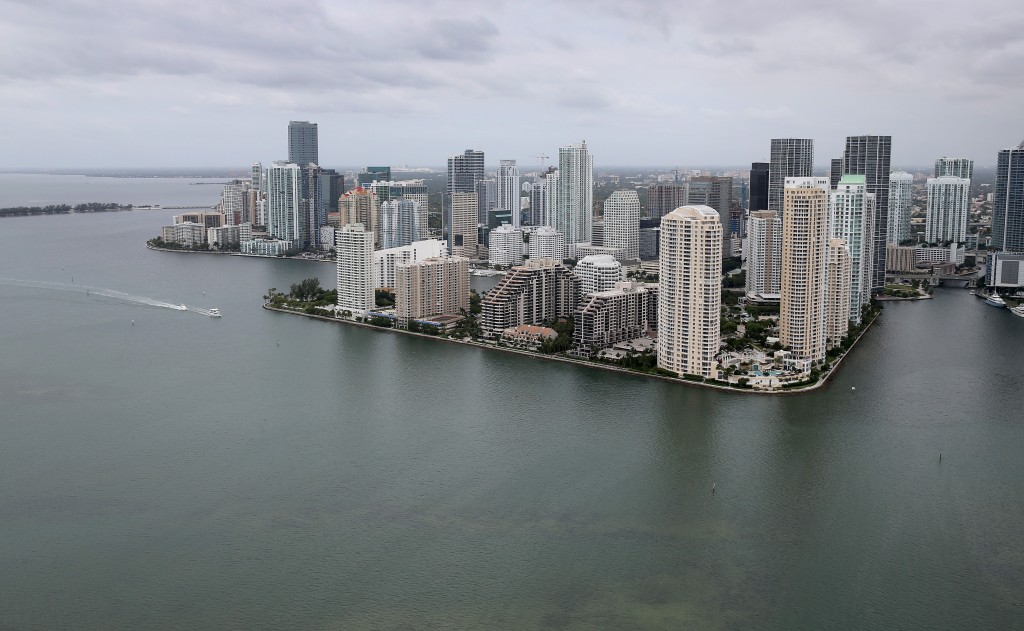Miami Votes to Implement Nation’s First Climate Tax
A Historic Move for Climate Resilience
On June 25, 2024, Miami made a groundbreaking decision when voters approved the nation’s first municipal climate tax as a part of the Miami Climate Resilience Initiative. With a notable 58% approval rate, this tax is designed to generate approximately $300 million annually for extensive environmental resilience efforts. The necessity for such a measure has never been clearer given Miami’s increasing vulnerability to climate change impacts, particularly rising sea levels and extreme weather conditions.
The Miami Climate Resilience Initiative Explained
The Miami Climate Resilience Initiative is structured to include a modest increase in property taxes along with heightened hotel occupancy fees. The funding gathered through these measures will be specifically dedicated to various projects aimed at enhancing the city’s ability to withstand climate-induced challenges. Key areas of focus will include upgrading stormwater infrastructure, elevating vulnerable roadways, reinforcing existing seawalls, and implementing green initiatives such as urban reforestation and wetland restoration, all aimed at bolstering the city’s defenses against rising water levels.
Mayor Levine Cava’s Celebration
Following the successful vote, Mayor Daniela Levine Cava took to the podium to celebrate this landmark decision. In her remarks, she remarked, “This is a defining moment for Miami. We’ve shown the country and the world that we are serious about protecting our city and our people from the existential threat of climate change.” Mayor Levine Cava’s enthusiasm reflects the collective hope that this initiative will provide the necessary resources to tackle the escalating climate crisis facing Miami.
The Urgent Climate Context
The passing of the climate tax is underscored by a series of alarming climate-related developments in Miami. A record-high heat wave and a NOAA report projecting that the city could face up to 14 inches of sea level rise by the year 2060 have prompted urgent calls for action. These challenges threaten not only the infrastructure of Miami but also the livelihoods of residents and the sustainability of its economy, heavily reliant on real estate and tourism.
Concerns from the Opposition
Despite substantial public support, the initiative has also met with opposition. Business groups and some residents have voiced concerns regarding the financial implications of the tax. Local business owner Carlos Ramirez openly expressed his apprehensions, stating, “This tax will hit property owners hard, and it could hurt small businesses. We support resilience efforts, but we need solutions that don’t make living here unaffordable.” Such concerns highlight the delicate balance between addressing climate risks and ensuring the economic viability of the community.
Support for Long-Term Benefits
Proponents of the initiative argue that the long-term benefits far exceed the short-term financial burdens. They stress that Miami’s economic health relies on its environment; hence, investing in climate resilience is critical for protecting and sustaining both the real estate market and the tourism industry. Tales of towns devastated by climate impacts serve as a stark reminder of what unaddressed climate issues can lead to, further validating the need for preemptive measures such as the climate tax.
Setting a Precedent for Other Cities
The successful measure positions Miami as a pioneer in climate policy at the municipal level, a potential model for cities nationwide. As federal climate initiatives seem to stall, Miami’s proactive approach may encourage other regions to explore their own localized solutions. By leading the charge, Miami not only addresses its immediate challenges but also sets an example for others grappling with similar climate realities.
Conclusion: Charting a Resilient Future
Ultimately, the approval of the Miami Climate Resilience Initiative signifies a critical first step towards ensuring a safer and more sustainable future for the city. By investing in resilience projects designed to combat the imminent threats posed by climate change, Miami is taking decisive action in safeguarding its residents and infrastructure. As the challenges posed by climate change continue to escalate, the success of this initiative could prove to be a pivotal moment in how cities respond to environmental changes.
FAQs
What is the Miami Climate Resilience Initiative?
The Miami Climate Resilience Initiative is a municipal climate tax approved by voters to fund environmental resilience projects in Miami. It aims to generate around $300 million annually by increasing property taxes and hotel occupancy fees.
How will the tax revenue be used?
The revenue generated from the tax will be allocated to upgrading stormwater infrastructure, elevating roads, reinforcing seawalls, and implementing green solutions like urban reforestation and wetland restoration.
What are the main concerns from opposition groups?
Opponents, including some business groups and residents, have raised concerns about the potential financial burdens that the tax may impose, particularly on property owners and small businesses.
Why is this initiative considered groundbreaking?
The Miami Climate Resilience Initiative is regarded as groundbreaking because it is the first of its kind in the United States, setting a new precedent for municipal-level climate policies in response to serious climate challenges.
What impact could this initiative have on other cities?
This initiative could serve as a model for other cities facing similar climate vulnerabilities by demonstrating that localized solutions are viable alternatives when federal efforts stall and emphasizing the importance of proactive climate measures.

